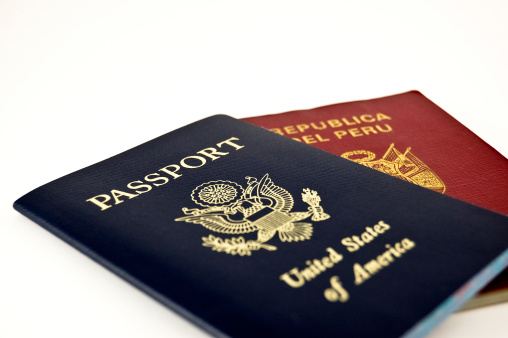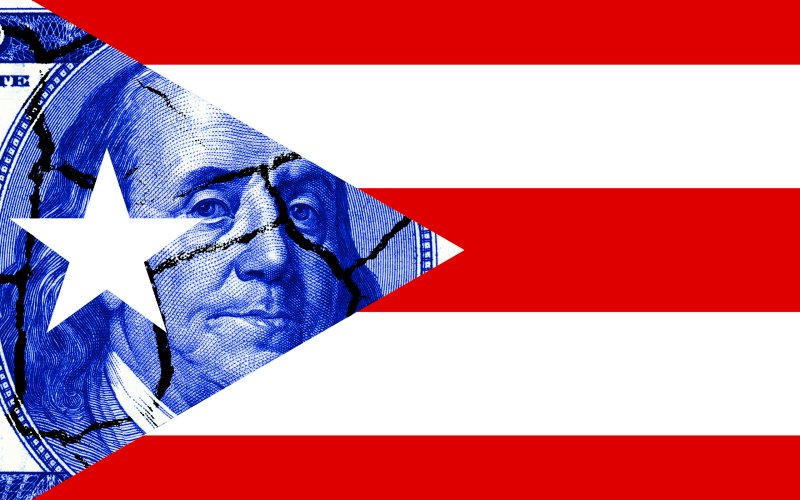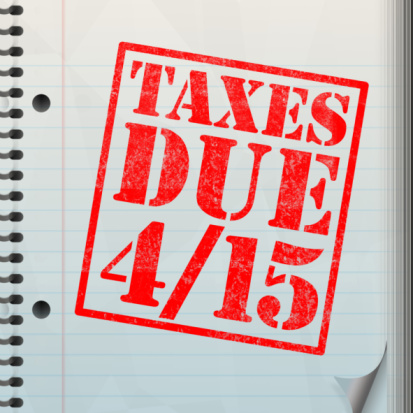Coming to America Tax Free with the EB-5 Visa and Puerto Rico
If you are thinking about coming to America, get ready for high taxes on your worldwide income. In this article, I will explain how to become a US citizen using the EB-5 Visa and Puerto Rico to pay near zero US taxes.
The US taxes its citizens, as well as green card holders and residents, on 100% of the money they make from all sources around the world. If you are living in the United States, America wants her share… and that share is often over 40% of your total earnings.
If you are operating a successful business from Hong Kong, and you move to the US, all profits of that Hong Kong business become taxable. If you move to America and then sell your home in Singapore, you will pay US tax on the capital gains realized.
There is one, and only one, way to get US citizenship without paying these taxes. That is to come to America tax free with the EB-5 Visa from Puerto Rico.
Because Puerto Rico is a US territory, US Federal immigration laws apply but US tax laws do not. The tax laws of Puerto Rico supersede the US tax rules for residents of the island. Because of this hybrid legal system, you can immigrate to the United States through Puerto Rico using the EB-5 visa and qualify to live tax free under Puerto Rico’s tax laws.
- Resident: A “resident” of Puerto Rico is someone who spends at least 183 days a year on the island. Travel between Puerto Rico and the US is a domestic flight with no immigration checkpoint. As an EB-5 visa holder, you may spend the rest of your time (180 days a year) in any part of the US you choose.
Once the EB-5 visa process is complete, you will be a US citizen with all of the rights and privileges of someone born in the US and who pays 40%+ in taxes. You will have a US passport and the right to live and work anywhere in the country.
The same is true of children born in Puerto Rico. Anyone born in Puerto Rico is a US citizen at birth, just as they are if born in a State. The only difference between Puerto Rico and the US in this case are its tax laws.
Here is a description of the EB-5 Investor Visa, a summary Puerto Rico’s tax laws, and how to maximize the benefits of both to become a US citizen tax free.
What is the EB-5 Investor Visa
The EB-5 investor visa is a path to US citizenship. Unlike many other US immigration programs, the EB-5 visa has no waiting lists, quotas, or lottery. The terms are simple – make the investment, wait five years, and become a US citizen by going through the naturalization process. If you follow the steps, citizenship and a US passport are guaranteed.
The investment required for the EB-5 investor visa is far higher than any other program. You must invest in a business that creates at least 10 new jobs and maintains those jobs for about 6 years (the total time to complete your citizenship process).
The amount of money you are required to invest will depend on where the business is located. Most cities in the US require an investment of $1 million. If you set up the business in a distressed region of the country, the investment is reduced to $500,000.
Basically, all of Puerto Rico is designated as a distressed region for the EB-5 investor visa. Any business created on the island will qualify for the discounted investment amount of $500,000.
Of course, you will need to keep the business operating and profitable for at least 6 years with 10 employees. If you can do that with $500,000 in capital, great. If it requires more, then you will need to invest more.
What is Puerto Rico Act 20 and 22
When the EB-5 investor visa is combined with the tax benefits of Puerto Rico, you may be able to immigrate to the United States, obtain a green card, and finally citizenship with a US passport, all without paying a dollar in tax.
In order to accomplish this feat, we combine the EB-5 Investor Visa with Act 20 and Act 22 in Puerto Rico. I will briefly summarize them here.
Act 20 is the business tax holiday that gets you a 4% corporate tax rate on any profits earned by your Puerto Rico company. The requirements are simple:
- The minimum number of employees required for Act 20 business is 5. However, to qualify for EB-5, you need 10. So, we setup an Act 20 company with 10 employees.
- The company must be providing a service from Puerto Rico to persons or companies outside of Puerto Rico. Internet marketing, call centers, import / export, sales teams, and any online business are good candidates for Act 20. Retail businesses, franchises and restaurants do not qualify for Act 20. They do qualify for the EB-5 visa, but not for the tax deal.
For more detailed information on Puerto Rico’s Act 20, see: How to Maximize the Benefits of Puerto Rico Act 20
Act 22 is the personal tax holiday. A legal resident of Puerto Rico, who purchases a home, spends at least 183 days a year on the island, and signs up for Act 22, will pay zero capital gains tax and zero tax on dividends from his or her Puerto Rico company.
When you combine Act 20 with 22, you get a corporate tax rate on profits of 4% and zero tax on distributions of dividends from those profits. The only tax paid is the 4% corporate rate.
I also note that salaries in Puerto Rico are lower than anywhere in the US and that they might be going lower. Minimum wage is $7.25 and a recent House bill exempts Puerto Rico from increases in the Federal minimum wage for the next 5 years.
For more information on recent legislation, see: Good News from Congress for Act 20 Business in Puerto Rico
How to Combine the EB-5 Investor Visa with Puerto Rico Act 20 and 22
In order to combine the immigration benefits of the EB-5 investor visa with the tax benefits of Puerto Rico, we can setup an internet business or other service based company for you on the island. That company will have 10 employees and qualify under Act 20 and EB-5.
For example, the business might provide content, design, advertising, and SEO services to persons and companies outside of Puerto Rico. Alternatively, the business might import goods from China and sell them to a distributor in the US (may operate as a wholesaler but not a retailer).
For a complete list of services that qualify for Act 20, please send an email to info@premieroffshore.com.
You may fund the business with $500,000 to $1 million in capital. Remember that the business must be self sufficient for at least 6 years and that your investment should cover costs until break-even. Your business plan must show a stable and profitable business will be operating from the United States with at least 10 employees.
As I said above, profits of this business will be taxed at 4%. Dividends to you, a resident of Puerto Rico, will be tax free.
What if you Don’t Want to Live in Puerto Rico?
You are not required to live in Puerto Rico to qualify for Act 20 or for the EB-5. Only Act 22, the personal tax holiday, requires you be a resident of the island.
If you immigrated to the US with an EB-5 investor visa, and setup an Act 20 company, but did not live in Puerto Rico, you would pay 4% in tax on Puerto Rico sourced income. You could then hold net profits from Puerto Rico sourced income in the corporation tax deferred.
If you are living in the US, you would pay US tax on any dividends or distributions from that Puerto Rico company. You would also pay US tax on income from your investments outside of the US.
So, Act 20 will get you tax deferral in your EB-5 business. Act 22 gets you tax free distributions from that EB-5 business. Act 22 also cuts your US tax rate to zero on capital gains on assets acquired after your move to Puerto Rico.
How to Use an E-2 Visa to Expedite an EB-5 Visa Application
The EB-5 visa process is a long one. Remember that it comes with guaranteed US citizenship and green card. As such, the process is demanding.
It will take well over a year to have your EB-5 visa approved. If getting into the United States as quickly as possible is important to you, then you might apply under the E-2 visa program first.
We can setup an Act 20 business with an E-2 and get your temporary visa in 30 to 90 days. This gets you and your family into the country.
You then operate the business with 5 employees under E-2 until your EB-5 is approved. When you get your green card under the EB-5, you hire 5 more employees for a total of 10. This is because the E-2 and Act 20 require 5 employees. When you are ready to upgrade to the EB-5, you can add 5 more for a total of ten employees in Puerto Rico.
Note that the E-2 visa is only available to those from treaty countries and has different requirements from the EB-5. For more information, see E-2 Treaty Investor Visa
How I can Help
We can assist you from start to finish in setting up an EB-5 and Act 20 compliant business in Puerto Rico. This includes writing the business plan, financial analysis, and everything related to applying for the EB-5.
Next we will incorporate your business, lease office space, hire and train employees, and get the business operating. This will include an Act 20 contract with Puerto Rico that will guarantee your tax holiday for 20 years.
We provide a turnkey solution in Puerto Rico that will maximize the benefits of the EB-5 and tax benefits of Puerto Rico. For more information, you can reach me directly at info@premieroffshore.com or by calling (619) 483-1708.




















